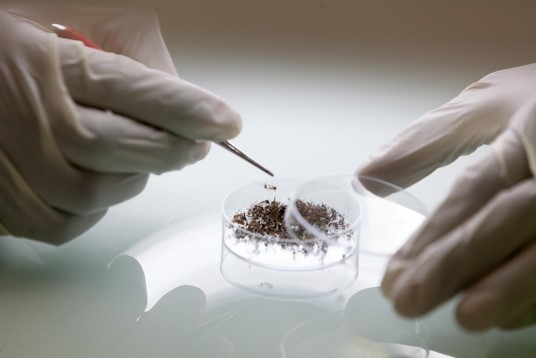Description
Material provided: Personalized training for end-users
Unit definition: 1 week of access
Biosafety Level: CL1
Installation name: Vectopole Amazonien, Institut Pasteur de Guyane (IPG), Cayenne, French Guiana
Website: Vectopole Amazonien
Description of the facility
The Vectopole Amazonien is a platform located on the IPG campus in Cayenne (French Guiana) dedicated to the study of vectors and the pathogens they transmit. This 500m2 facility includes BSL3 and BSL2 laboratories-insectaries to work on vector competence and microbiota, a large insectary for mosquito rearing and maintenance of field collected mosquitoes, laboratories for taxonomy studies, insecticide resistance tests and molecular biology. It hosts two research groups at Institut Pasteur de la Guyane.
French Guiana is a region of France bordering Brazil and Suriname in the North of the Amazon basin, where approximately 235 mosquito species, 80 species of sandflies and many other species of insects or arthropods from various groups of medical interest are listed.
Available vectors
Experiments are conducted with mosquito vector colonies available in the lab (Aedes aegypti), as well as arthropods collected locally, possibly reared for 1 generation (Aedes sp., Culex sp, Anopheles Nyssorhynchus sp…)
Course overview
A personalized (1-3 persons) 3-week theoretical and hands-on course on medical entomology, which will allow participants to widen and update their knowledge on vector biology while being trained on field work methods, notably via a participation in the Amazonian Course on Medical Entomology. This includes seminars, lab and field work, and active pedagogy. Fieldwork will be performed via a week of immersion in the rainforest, working on a research project in direct link with the trainee’s daily research topic.
The trainee will be in contact with the trainer before and after the 3-week course in order to ensure a good integration of this research training into his/her home-lab research project. Arthropod sampling for his/her research project can be discussed and will be subject to governmental validation according to Nagoya protocol.
This Personalized Training will be organized from 28 September to 16 October 2020 (tbd). Users from South America are particularly welcome to apply.
Equipment used
Trainees will use the following equipment:
A fully equipped insectary and its materials and consumables for insect rearing (trays, cages, shelves), a climatic chamber, microscopes, specific consumables for microbiota analyses (biosafety cabinet, flasks, Petri dishes,…), behavioural assays (Y-shaped tubes, camera) and insecticide resistance tests (WHO tubes), field work material (traps, GPS).
For more information, please contact us.

